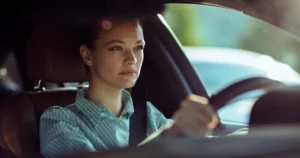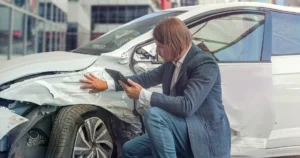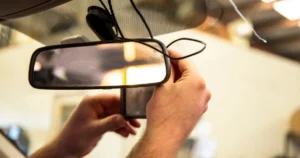 A police officer issuing one or more drivers a ticket after an accident is common. This is usually because someone broke a traffic law that caused the collision. However, there are times when a traffic ticket may not automatically determine fault.
A police officer issuing one or more drivers a ticket after an accident is common. This is usually because someone broke a traffic law that caused the collision. However, there are times when a traffic ticket may not automatically determine fault.
If the insurance company tries to deny your claim because you were issued a ticket, call our South Bend-area auto collision lawyers today. We offer a free consultation to discuss your claim and determine the legal options that may be available.
Below, we discuss how a traffic ticket may affect your accident claim.
Does a Traffic Ticket Mean I Am At Fault?
No, a traffic ticket does not automatically mean a driver is at fault for a collision. This is because traffic tickets are issued for several reasons. Sometimes the reason for the ticket has nothing to do with the cause of the crash.
Another driver may get ticketed after the crash as well, but this does not mean the fault for the collision is shared.
The insurance company would dispute fault even if their insured driver is the only one to get a ticket. This is just one of the reasons to have a lawyer on your side fighting to protect your interests.
Why Were You Ticketed?
If you were ticketed after a crash, it is important to know why. It could have a significant impact on your accident claim. The reason for the ticket may also determine whether someone is at fault for the collision.
There are two types of citations drivers may receive:
- Moving violations
- Non-moving violations
A ticket for a moving violation could mean you are at least partially to blame for the collision. For example, if you were ticketed for:
- Speeding
- Running a red light or stop sign
- Texting and driving
- Failing to yield
- Reckless driving
There are some instances when a ticket for a moving violation is not enough to prove you are even partially at fault for the collision. For example, if you failed to use a turn signal and were rear-ended by a driver who followed too closely or was speeding.
Non-moving violations usually apply when you are not driving a vehicle. For example, if you are issued a parking ticket. Failure to wear a seatbelt is also considered a non-moving violation in Indiana. Not wearing a seatbelt is not what causes a collision, though. Even if the insurance company argues that by not wearing a seatbelt, you failed to mitigate your damages, it may not be enough to deny your claim.
Were You the Only Driver Who Was Ticketed?
The insurance company may have a hard time denying your claim if the other driver involved in the crash also gets a ticket. Especially if the reason for your ticket is not what caused the collision.
An example of this is if you are ticketed for not using a turn signal but the other driver is ticketed for running a stop sign. In this situation, the other driver may be held liable for the damages.
Were You a Passenger Who Was Ticketed?
In Indiana, adult passengers may get a ticket for things like not wearing a seatbelt. If you were injured in a crash as a passenger and received a ticket, you may still be able to recover full compensation for your damages.
Your legal options strongly depend on the facts of the case, though, so it is important to discuss your situation with an attorney.
How Will a Traffic Ticket Affect My Claim?
A ticket can impact your claim, even if it does not change the outcome of the case. At the very least, your case could take longer to resolve. This is because both your attorney and the insurance company need to investigate the reason for the ticket.
If your citation proves you share fault for the crash, your compensation may get reduced by the percentage of fault assigned to you. Remember that injury victims in Indiana may only recover compensation if they are less than 50 percent at fault.
On the other hand, if it turns out you were ticketed for an accident that caused the crash, then you would not be able to recover any compensation.
Can I Contest a Traffic Ticket?
It is part of your attorney’s job to investigate the reason for the ticket. Therefore, if your attorney concludes it is an unjustified citation, you may be able to dispute it. Your chances for disputing the citation may improve if it falsely places the blame for the crash on you.
It is important to note that even if you disagree with the police officer who issues the ticket, it may not be a good idea to refuse to accept it at the crash scene.
You have the right to dispute your citation in court, so it may be in your best interest to accept it at the scene to avoid legal troubles.
Let Us Help. Call Today
If the insurance company tries to deny your claim because you were ticketed after a crash, we are prepared to help. Our attorneys can review your claim during a free consultation to determine your legal options.
There are no fees while we work on your case, and you do not pay us unless we recover compensation on your behalf.
No upfront fees. No risks. Call (574) 444-0741 today.












